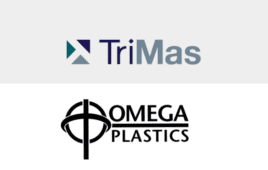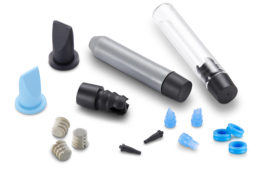MSC Software Corporation recently announced the sixth release of MSC Apex, the company’s next-generation Computer Aided Engineering (CAE) platform. MSC Apex Fossa is the winner of 13 product awards and 25 patent filings to date, is the result of 450+ man years of software development and is in use in over 300 companies’ worldwide.
Now on its sixth release, Apex has advanced from a highly productive model-preparation tool to a complete simulation system.
Redefining Vibrational Analysis
Examples of problems related to vibrations can be found everywhere. Vibration has to be addressed anytime a part or an assembly is subjected to a cyclic load, such as those found in cars, airplanes, consumer equipment, and so on. Currently, addressing these issues is a tedious trial-and-error process.
Apex Fossa allows design exploration to happen in the analysis result space, without having to go back to CAD and redesign the entire part or assembly. This dramatically reduces the time for a power-user to achieve the optimal solution (from days to hours) and democratizes vibrational analysis, making it accessible to more engineers.
Engineers can now see how a part or a structure responds to input parameters in real-time. Users can explore a large variety of “what if” scenarios, by adding or removing mass, damping or stiffness, as well as determine if they are observing a global or local behavior without leaving the Apex environment. This allows engineers to rapidly determine which part of the structure is not behaving as expected, and to quickly propose an effective solution.
Release Highlights:
- Modeling – Even more productivity can be achieved in geometry clean-up, mesh generation and clean-up. This includes new connections, loads and boundary conditions (such as local coordinate system, distributed coupling, moments and dynamic forces), new meshing enhancements, geometry tools (such as slicing mirroring and Boolean operators), and additional export formats.
- Simulation – Computational parts-based generative framework has been extended from linear statics to now include the first phase of dynamics, Frequency Response. This includes Structural, Modal, and Material Damping, Multi-Step Analysis, Point Sensor, XY-Plotting and Frequency Response results exploration.
- Extensibility– Initial Python scripting capability is introduced in Apex Fossa. Python API has been carefully designed for compliance with Python standards. The API is based on true Python idioms and uses built-in, native Python data structures. The Python community of rich libraries makes customization powerful and easy.
Apex Fossa makes the CAD-to-Mesh process radically faster, gives more engineers access to frequency response analysis and makes the overall FEA process more effective, more efficient and more enjoyable. Apex Fossa will be available for general release at the end of September.
MSC Software
www.mscsoftware.com




